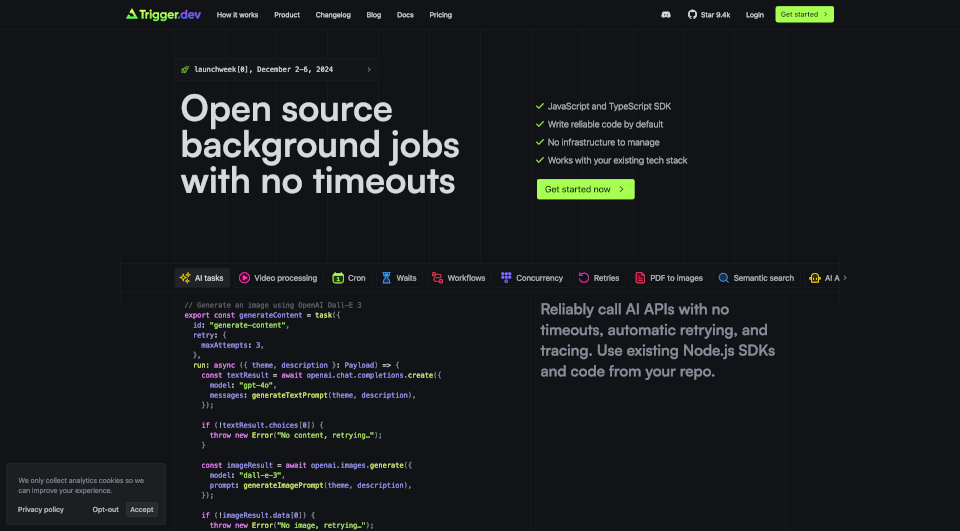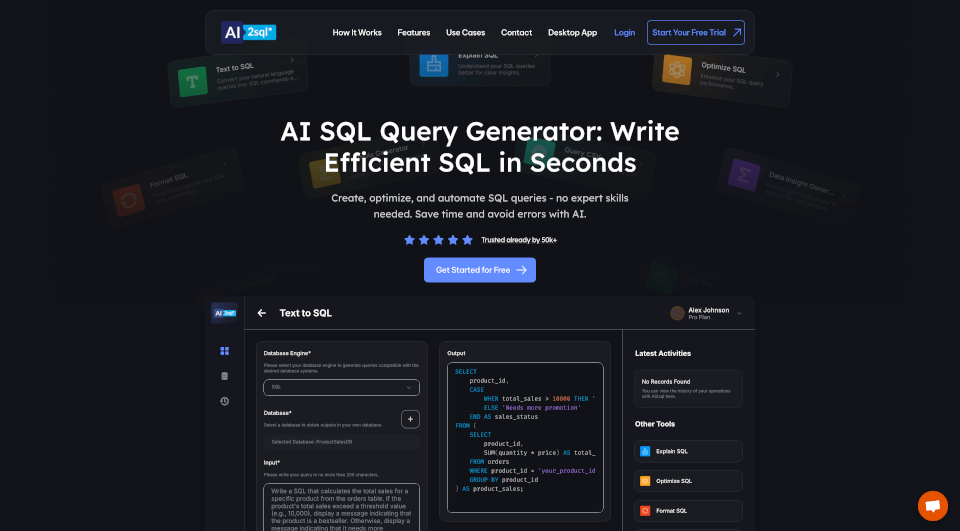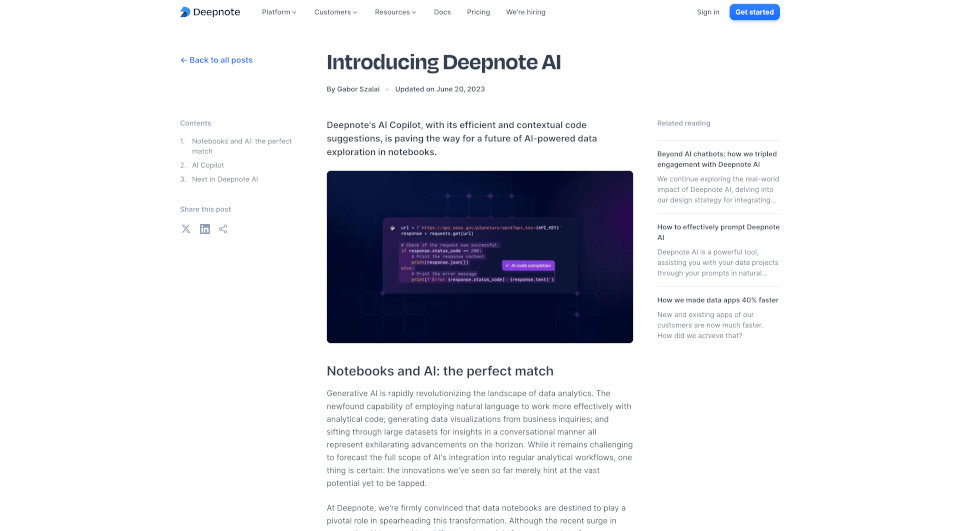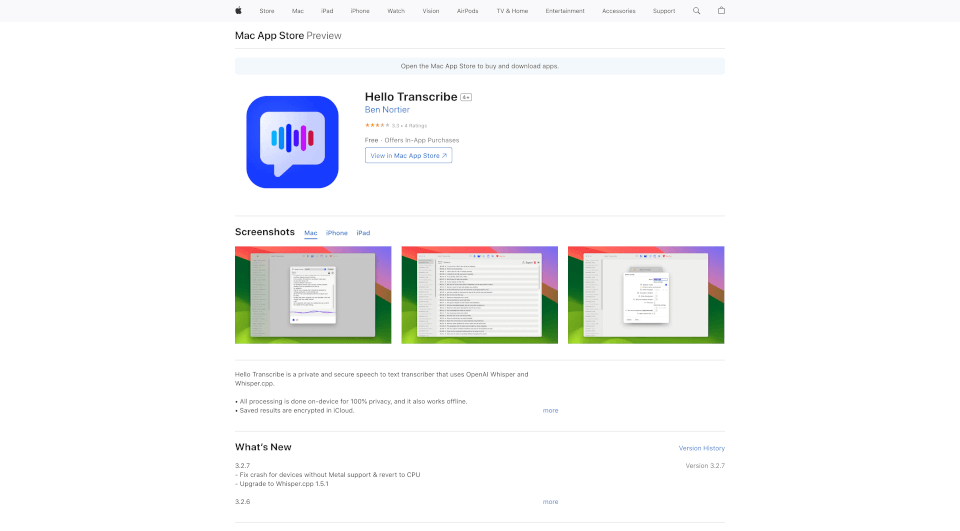What is Trigger.dev?
Trigger.dev is an open-source platform for building and managing background jobs without the hassle of timeout issues or complex infrastructure management. Designed for developers, Trigger.dev streamlines the process of creating and deploying reliable background tasks, enabling teams to focus on building robust applications. Featuring both a JavaScript and TypeScript SDK, Trigger.dev allows for seamless integration with existing tech stacks, making it a versatile tool for modern development environments.
What are the features of Trigger.dev?
Trigger.dev offers a robust set of features that differentiate it from traditional job management systems:
-
No Timeouts: Unlike conventional systems that impose strict limits on task durations, Trigger.dev allows tasks to run as long as needed, giving developers the flexibility to handle diverse processing requirements without interruptions.
-
Task Concurrency and Queues: Control how many tasks run simultaneously, optimizing resource usage and performance based on your application’s demands.
-
Scheduled Tasks: Automated scheduling capabilities transform the way developers implement cron jobs, allowing for durable cron schedules without the worry of execution timeouts.
-
Real-time Monitoring and Observability: Gain insights into task execution with real-time monitoring, tracking failures and successes, and allowing you to troubleshoot quickly.
-
Automatic Retries: In cases of failure, Trigger.dev's built-in retry mechanisms can automatically attempt to rerun failed tasks based on customizable criteria, ensuring higher reliability and reduced manual intervention.
-
Batch Triggering: Efficiently trigger multiple tasks in a batch, which is particularly useful for large-scale data processing scenarios.
-
API Integration: Out of the box, Trigger.dev integrates smoothly with popular services and provides support for calling external APIs efficiently, streamlining workflow automation.
-
Self-hosting Options: The open-source nature of Trigger.dev allows developers to self-host the platform, tailoring it to specific organizational needs while retaining complete control.
-
Development Focused: Trigger.dev is built with developers in mind; it employs an intuitive code-based interface that allows for tasks to be defined programmatically, enhancing the integration within existing development workflows.
What are the characteristics of Trigger.dev?
-
Ease of Use: Trigger.dev is designed to be developer-friendly, with minimal configuration required for getting started. This means teams can quickly onboard and see results without a steep learning curve.
-
Robustness: With automatic retries and real-time observability, Trigger.dev ensures that jobs are not only executed but are also resilient against failures, providing peace of mind when it comes to critical background tasks.
-
Flexibility: Whether you require a small deployment or are scaling up to handle thousands of jobs concurrently, Trigger.dev adapts to your needs without significant changes to its configuration.
-
Community Support: Being an open-source tool, Trigger.dev benefits from contributions and feedback from a community of enthusiastic developers, leading to continuous improvements and updates.
What are the use cases of Trigger.dev?
Trigger.dev can be applied in various scenarios, including but not limited to:
-
Email Campaign Management: Automate the sending of marketing emails, processing responses, and scheduling follow-up communications without overloading your systems.
-
Data Processing and ETL Tasks: Handle complex Extract, Transform, Load (ETL) processes that require multiple steps and interactions with various databases.
-
Long-running Background Jobs: Manage tasks such as video rendering, PDF generation, or image processing that can take considerable time, ensuring they complete successfully without interruption.
-
Real-time PDF Conversion: Use Trigger.dev to enable real-time conversions and processing of documents, enhancing user experience and operational efficiency.
-
Integrating AI Workflows: Call APIs from AI services (such as OpenAI) to facilitate complex workflows, including generating content, images, and processing natural language tasks.
-
Web Scraping Jobs: Automate the process of scraping data from websites without manual intervention, running jobs based on defined triggers such as database changes.
-
Maintenance Tasks: Schedule regular maintenance jobs, such as backups and data synchronization, to keep your systems running smoothly.
How to use Trigger.dev?
To get started with Trigger.dev, follow these simple steps:
-
Install the SDK: Begin by installing Trigger.dev in your Node.js environment.
-
Define Your Tasks: Use the provided task creation functions to define what your background jobs will do. Customize parameters such as retries and concurrency based on your project's needs.
-
Set Up Triggers: Schedule your tasks using Trigger.dev’s built-in cron-like scheduling or tie them to specific events within your application.
-
Monitor Execution: Use the dashboard to observe your tasks in real-time, checking for successes and failures, and gaining insights into performance.
-
Iterate and Improve: Based on monitoring data, tweak your tasks and configurations to optimize performance and reliability.
Trigger.dev Pricing Information:
Trigger.dev offers a flexible pricing model where you only pay for what you use. This ensures that your costs align directly with your actual usage, making it an economical choice for budget-conscious development teams.
Trigger.dev Company Information:
Trigger.dev is dedicated to redefining the landscape of background jobs for modern developers. The platform is well-regarded in the tech community, receiving praise for its ease of use, flexibility, and robust feature set.








